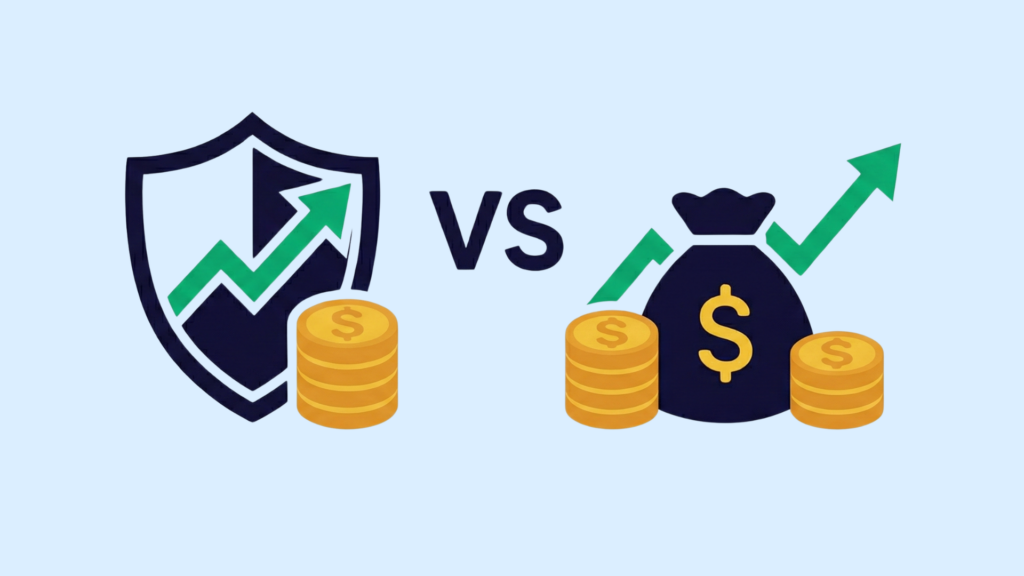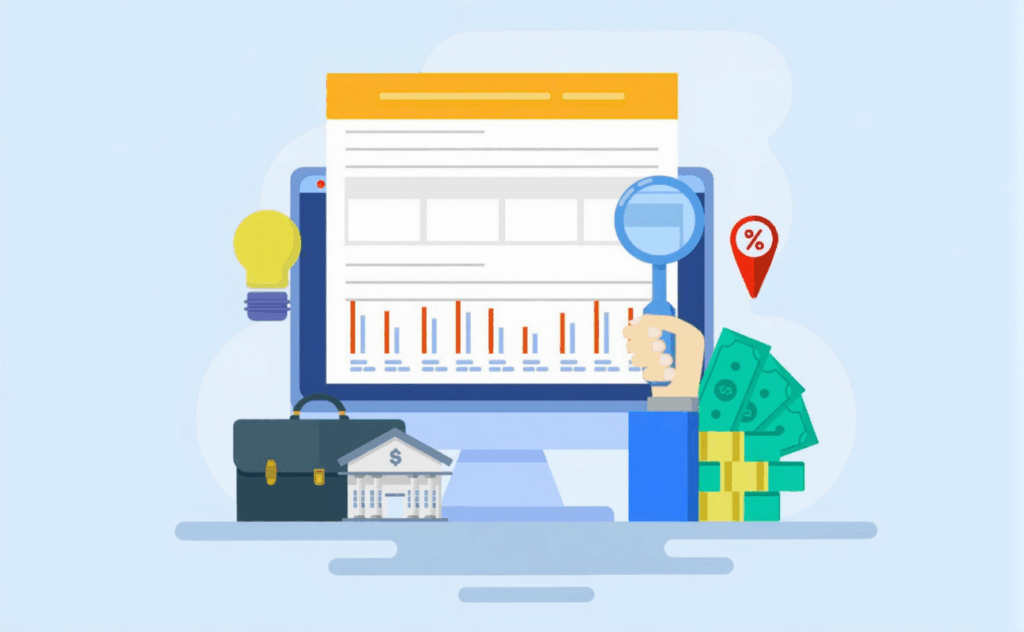Every time you sell or transfer shares from your Demat account, a small fee called a Depository Participant (DP) charge is deducted: a cost often overlooked by investors but one that directly affects your trading expenses.
In this blog, we’ll break down what DP charges are, how they’re calculated, and the key factors that influence them, so you can better manage and minimise your overall investment costs.
Understanding DP Charges
For every investor holding securities in a Demat account, certain fees are charged by intermediaries for maintaining and managing those holdings. These are called DP charges (Depository Participant charges).
Whenever you sell shares or transfer securities from your Demat account, a small fee is deducted to cover the cost of processing the transaction. These charges are generally applied per ISIN (International Securities Identification Number) and per transaction, regardless of the number of shares sold.
Role of a Depository Participant
A DP acts as a bridge between you and the depository — either NSDL (National Securities Depository Limited) or CDSL (Central Depository Services Limited).
Their role includes:
- Opening and maintaining your Demat account.
- Facilitating the buying, selling, and transfer of securities electronically.
- Handling corporate actions such as dividends, splits, and bonus issues.
- Charging and remitting applicable depository and transaction fees.
Types of Depository Charges
Depository-related costs vary depending on your broker and account type. These charges can broadly be grouped into three main categories: Demat account charges, depository charges, and account opening fees.
Demat Account Charges
Demat account charges include all the fees associated with maintaining and operating your account. The most common ones are:
- Account Maintenance Charges (AMC): Annual fees charged by your DP, typically ranging from ₹300 to ₹700 per year.
- Transaction Charges: Applied when you sell or transfer securities, usually ₹10–₹25 per ISIN per transaction.
- Custodian Fees: Nominal charges for holding securities in your account (often absorbed by the DP for retail investors).
Depository Charges
Depository charges are fees levied by NSDL or CDSL, passed on to investors through their DPs. These charges cover services such as:
- Electronic transfer of securities between accounts.
- Dematerialisation and rematerialisation of physical shares.
- Pledge creation or closure for margin trading.
Demat Opening Charges
When you open a new Demat account, most brokers charge a one-time account opening fee, though many discount brokers waive it to attract investors.
Typical opening fees:
- Full-service brokers: ₹100–₹500
- Discount brokers: Often ₹0 (free account opening)
How Are DP Charges Calculated?
DP charges are calculated based on the type of service, the number of transactions, and the broker’s pricing policy:
Account Maintenance Fee (AMC)
The AMC is a recurring fee that brokers or DP charge for keeping your Demat account active.
- It’s usually charged annually, but some brokers bill it monthly or quarterly.
- The amount typically ranges between ₹300 and ₹700 per year for individual investors.
- Some brokers offer lifetime free AMC plans or waive the first-year fee for new accounts.
For example, if your broker charges ₹500 annually, you’ll pay this once a year to maintain your Demat account, regardless of the number of transactions.
Transaction Charges
Transaction charges apply every time you sell or transfer securities from your Demat account.
- These are typically charged per ISIN per transaction, not per share.
- The rate ranges from ₹10 to ₹25 per transaction, depending on your broker.
- When you buy securities, no DP charge applies; the fee is levied only on sell-side transactions.
For example, if you sell 200 shares of a company, your broker may charge ₹15 for that transaction, regardless of the number of shares sold.
Other Additional Charges
Apart from AMC and transaction fees, some brokers may levy additional service-based charges, such as:
- Pledge Charges: Applied when pledging shares for margin, usually ₹25–₹50 per ISIN.
- Custodian Fees: Charged for maintaining securities; often absorbed by the DP for retail clients.
- e-Voting or SMS Alerts: A small fee for electronic voting or communication services.
- Dematerialisation/Rematerialisation Charges: For converting physical shares to electronic form or vice versa.
Factors Affecting DP Charges
Several factors influence the total DP charges an investor may charge, including:
Type of Securities Held
The nature of securities in your Demat account affects the overall DP cost:
- Equity shares generally attract standard DP and transaction charges.
- Debt instruments or bonds may have lower or no transaction fees due to less frequent trading.
- Mutual fund units held in Demat form often have zero DP charges, depending on the AMC and platform used.
Number of Transactions
Frequent trading increases the total DP costs since each sale or transfer triggers a separate charge.
- Active traders or intraday investors may accumulate higher DP fees over time.
- Some brokers offer flat-rate or discounted plans for high-volume traders to reduce per-transaction costs.
DP’s Fee Structure
Every broker (DP) has its own pricing structure, which can differ even under the same depository (NSDL or CDSL).
- Full-service brokers typically charge higher fees, bundling in premium support and research services.
- Discount brokers offer lower or even zero AMC and DP charges to attract cost-conscious investors.
- Some DPs also charge differently for corporate and retail clients based on transaction volume.
Comparing DP Charges Across Providers
Some key components to look for when comparing DP charges among brokers or depository participants are:
- Account Maintenance Fee (AMC): Check whether the AMC is annual, quarterly, or monthly. Also, look for brokers that offer zero or lifetime free AMC.
- Transaction Charges: These apply whenever you sell or transfer securities. Look for brokers offering flat or capped fees for frequent traders.
- Depository Fees: Some brokers include NSDL/CDSL charges in their transaction fee; others list them separately.
- Additional Service Charges: Review costs for pledging, dematerialisation, rematerialisation, and e-voting. Also, check if corporate action services (dividends, bonuses, etc.) are free or chargeable.
How to Choose the Right Depository Participant
Choosing the right DP depends on your investment pattern and financial priorities. Here’s how to decide:
- For Active Traders: Opt for brokers with low or flat transaction fees and discounted AMC plans. Since frequent trading means higher DP costs, brokers like Zerodha, Groww, and Angel One often offer better value.
- For Long-Term Investors: Choose a DP that offers zero AMC or a lifetime free account with minimal transaction activity. Full-service brokers like HDFC Securities or ICICI Direct may be worth the higher fee if you need research and advisory support.
- For Mutual Fund Investors: If you primarily invest in mutual funds, look for platforms that offer no DP charges for mutual fund holdings — many AMCs and online platforms do this.
Conclusion
Understanding DP charges is very important for every investor using a Demat account. While these fees may seem minor, they directly affect your net investment returns, especially for active traders.
By comparing AMC, transaction fees, and additional service costs across providers, you can make more cost-efficient decisions and retain more of their earnings.
Frequently Asked Questions (FAQs)
How can I avoid paying DP charges?
You can reduce or avoid DP charges (Depository Participant charges) by limiting the number of sell transactions from your Demat account, as DP charges apply per sale. Some brokers also offer zero or discounted DP charge plans, so it’s worth checking your broker’s pricing policy before trading.
Can DP charges be claimed in ITR?
Yes, DP charges can be claimed as an expense while filing your Income Tax Return (ITR) if you earn income from trading or investing. They are deductible under business or capital gain expenses, depending on how your income is classified.
Are DP charges a fixed cost?
No, DP charges are not fixed across brokers. They vary depending on your broker or depository (NSDL/CDSL). Typically, brokers charge between ₹10 and ₹25 per transaction per ISIN, while some discount brokers offer lower or zero DP fees.
What factors influence DP charges?
DP charges depend on several factors:
- Type of broker (full-service or discount)
- Depository partner (NSDL or CDSL)
- Transaction volume and frequency
- Type of holdings (equity, ETFs, mutual funds, etc.)
Disclaimer
The information provided in this article is for educational and informational purposes only. It should not be considered as financial or investment advice. Investing in stocks involves risk, and it is important to conduct your research and consult with a qualified financial advisor before making any investment decisions. The author and publisher are not responsible for any financial losses or gains that may result from the use of this information.























